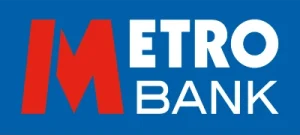
How to Pay Off Your Mortgage Early
Are you dreaming of a life without mortgage payments? Paying off your mortgage early can free up your finances and






Enter a few details about what you are looking for.
Save money by comparing instant quotes online.
Enter a few more details and receive free expert mortgage advice from Fluent Money.
Remortgaging is slightly different in that you are not normally moving house or purchasing a property, but moving an existing mortgage to another lender, or releasing some money from your mortgage for another purpose e.g. home improvements.
A remortgage can be a good way to save money. Cutting just 1% off your mortgage interest rate could result in an average saving of £80 per month, but you need to ensure you offset the cost of remortgaging against any savings you are looking to make.
Remortgaging is not something to be taken lightly as there are inevitable costs involved. These costs can include exit fees from your current mortgage, arrangement fees for the remortgage, valuation fees, conveyance fees and stamp duty fees. You need to take all of these costs into account before you begin to look at the different remortgage deals that are out there.
You will need an idea on how much you wish to remortgage for and how much you can afford to pay in monthly instalments. Then compare the various types of mortgage deals available and see what works best for you.
If you are considering a remortgage, think carefully about your reasons why, compare the deals to see what works for you, look at the total cost and identify who will take forward the remortgage.
You will need to look at your finances to be able to determine how much you can afford in monthly instalments.
Lenders will take into account lots of information to ensure they make the right decision. They will need to know personal details such as the name of the applicant, age, address, income and expenditure figures, and they will also take into account the applicant’s credit history.
Lenders tend to be more selective than in recent years, with people with better credit ratings having a higher chance of approval. However, there are some lenders who specialise in lending to those with poor credit ratings so it may not prove impossible.
With a fixed rate remortgage, your repayments are guaranteed to stay the same every month for a period, usually two or five years. However, fixed rates are sometimes higher than variable rates.
This is your lender’s standard interest rate for remortgages. You’ll be moved onto this at the end of a time-limited remortgage rate if you don’t switch and you’ll probably be paying more than you need to be.
Your interest rate is linked to your lender’s SVR (standard variable rate) minus a set percentage. The SVR can change at your lender’s discretion, so your monthly repayments will go up and down.
Your interest rate tracks the Bank of England base rate plus a set percentage. So as the base rate goes up and down, so will your monthly repayments.
An offset remortgage links your savings to your remortgage and ‘offsets’ their value against the loan balance. So you would pay less interest on your remortgage but your savings won’t earn any interest.
This allows you to pay just the interest charged on the loan each month which can mean lower monthly payments but you still have to plan to repay the amount you’ve borrowed at the end of the term.

Are you dreaming of a life without mortgage payments? Paying off your mortgage early can free up your finances and

There are lots of exciting things about moving home, but unless finance, research and admin float your boat, finding the

Buying a home is one of the most significant financial decisions you’ll ever make. For most people, it involves securing

When it comes to securing a mortgage in the UK, one of the most significant decisions you’ll face is whether
Think carefully before securing other debts against your home. Your home may be repossessed if you do not keep up repayments on a mortgage or any debt secured on it. The actual rate and fees charged will depend upon your circumstances. Ask for a personalised illustration. If you are thinking of consolidating existing borrowing you should be aware that you may be extending the terms of the debt and increasing the total amount you repay.